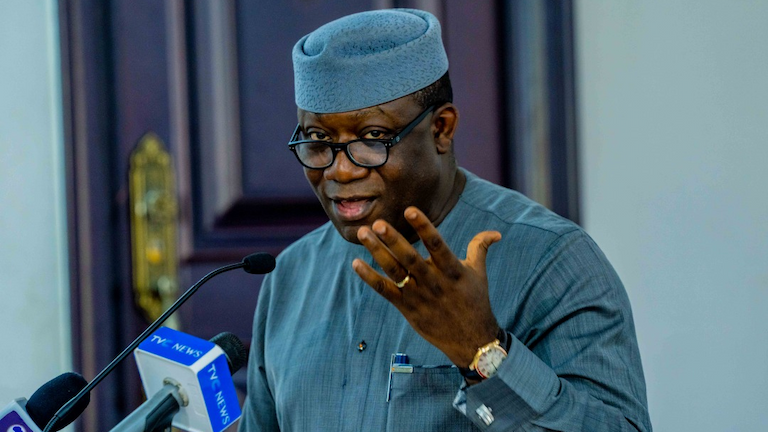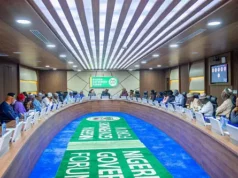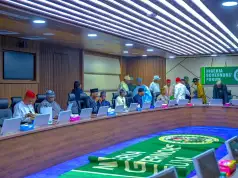The Chairman of Nigeria Governor’s Forum and Ekiti State Governor, Dr Kayode Fayemi, on Thursday, declared that the states give more funding to the Police than the Federal Government.

Fayemi said this while commenting on security vote at a panel discussion organised by the Nigeria Governors’ Forum (NGF) in partnership with the Centre for Democracy and Development (CDD).
Security vote which is a monthly allocation given to state governments for improved security, has been subject of controversy over the years.
Recently Oyo State Governor, Seyi Makinde dragged the Economic and Financial Crimes Commission (EFCC) before the Federal High Court, Ibadan, court for questioning how the state spent its security votes.
Fayemi, while justifying the security vote, said the police and other security agencies get funding support from governors.
He said “Some states have something called security vote. It is not all states. Security vote has a history and I will urge you to look for a book by chief Jerome Udoji — ‘[Under] Three Masters’, that’s what the book is called. You will find in that book the origins of security vote in Nigeria,” he said.
“I also get feedback from other states in my capacity as chairman of the governors’ forum. There is hardly any of these institutions that you are talking about that we don’t fund. We fund the police — we fund the police more than the federal government. Quote me.
“State governors fund police more than the federal government. We buy them vehicles; we pay them allowances. In some cases, we even buy ammunition; of course, under the authority.
“In 36 states in this country today, the military is involved in internal security operations, which really is a problem, because for me it’s a role inflation.
“Now, when you inflate the role of the security institution beyond its primary responsibility, you also have consequences that will come with that. That may not be palatable, but that’s where we are, because most Nigerians don’t trust the police.
“But if you engage the military in a civil authority, your state is only responsible to pay for the rations of the men that are engaged in that activity. It is not expected to have the military also share that burden because that’s not their primary responsibility. You’ve taken them out of their primary responsibility; you have to pay for it.
“So, we pay for that. We pay for civil defence. There is no security institution that you have that states are not responsible for more than the federal government that has primary responsibility for them.”









